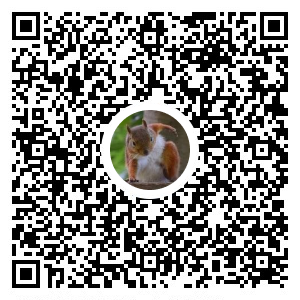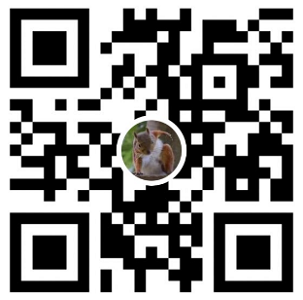Test Table Schema
--Table
CREATE TABLE [dbo].[Products](
[ProductID] [int] IDENTITY(1,1) NOT NULL,
[ProductName] [nvarchar](40) NOT NULL,
[SupplierID] [int] NOT NULL,
[CategoryID] [int] NULL,
[QuantityPerUnit] [nvarchar](20) NULL,
[UnitPrice] [money] NULL,
[UnitsInStock] [smallint] NULL,
[UnitsOnOrder] [smallint] NULL,
[ReorderLevel] [smallint] NULL,
[Discontinued] [bit] NOT NULL,
)
--PK
ALTER TABLE [dbo].[Products] ADD CONSTRAINT [PK_Products] PRIMARY KEY CLUSTERED
(
ProductID ASC,
SupplierID ASC
)
--NonClustered Index
CREATE NONCLUSTERED INDEX [IX_Products_CategoryID] ON [dbo].[Products]
(
CategoryID ASC
)
索引(Index) 測試
-- 叢集索引 (ProductID, SupplierID)
-- 非叢集索引 (CategoryID)
-- 測試 1
select SupplierID from products where ProductID=999 -- clustered index seek (叢集索引搜尋)
select * from products where ProductID=999 -- clustered index seek (叢集索引搜尋)
select * from products where ProductID=999 AND SupplierID=12 -- clustered index seek (叢集索引搜尋)
select * from products where SupplierID=12 AND ProductID=999 -- clustered index seek (叢集索引搜尋)
-- 測試 2
select SupplierID from products where SupplierID=12 -- index scan (索引掃描) (因where 需要按照索引順序)
select ProductID,SupplierID from products where SupplierID=12 -- index scan (索引掃描)
select ProductID,SupplierID,ProductName from products where SupplierID=12 -- clustered index scan (叢集索引掃描) (因select 有非 index欄位)
-- 測試 3
select SupplierID,CategoryID from products where CategoryID=8 -- index seek (索引搜尋)
select SupplierID,CategoryID from products where CategoryID=8 AND SupplierID=12 -- index seek (索引搜尋) (where 搜尋欄位 都有 index)
select SupplierID,CategoryID from products where CategoryID=8 AND SupplierID=12 AND UnitPrice=10 -- clustered index scan (叢集索引掃描) (where 搜尋欄位 有非 index欄位)
select SupplierID,CategoryID,ProductName from products where CategoryID=8 -- clustered index scan (叢集索引掃描) (select 欄位 有非 index欄位)
select SupplierID,CategoryID,CategoryID from products where CategoryID=8 -- index seek (索引搜尋) (select 欄位 都有 index)
-- 測試 4
SELECT ProductID,SupplierID,ProductName from products where ProductName='Schoggi Schokolade' -- 新增 非叢集索引 ProductName前 (clustered index scan (叢集索引掃描))
-- 新增 非叢集索引 ProductName
CREATE NONCLUSTERED INDEX [IX_Products_ProductName] ON [dbo].[Products] (
[ProductName] ASC
)
SELECT ProductID,SupplierID,ProductName from products where ProductName='Schoggi Schokolade' -- 新增 非叢集索引 ProductName後 (index seek (索引搜尋))
-- 測試5
select ProductID,SupplierID,ProductName,UnitPrice from products where ProductName='Schoggi Schokolade' -- clustered index scan (叢集索引掃描) (select 欄位 有非 index欄位)
-- 因為SELECT欄位包含非索引欄位 所以結果會是 叢集索引掃描
-- 但我們常常會select 很多其他欄位 可以在索引加上 Include 讓其他欄位 變為 Nonkey
CREATE NONCLUSTERED INDEX [IX_Products_ProductName] ON [dbo].[Products] (
[ProductName] ASC
)
INCLUDE (UnitPrice,UnitsInStock)
select ProductID,SupplierID,ProductName,UnitPrice from products where ProductName='Schoggi Schokolade' -- index seek (索引搜尋) (select 欄位 有非 index欄位)
select ProductID,SupplierID,ProductName from products where ProductName='Schoggi Schokolade' AND UnitPrice = 1 -- index seek (索引搜尋) (select 欄位 有非 index欄位)
select ProductID,SupplierID,ProductName from products where ProductName='Schoggi Schokolade' AND UnitsInStock = 1 -- index seek (索引搜尋) (select 欄位 有非 index欄位)
select ProductID,SupplierID,ProductName,UnitsInStock from products where ProductName='Schoggi Schokolade' -- index seek (索引搜尋) (select 欄位 有非 index欄位)
參考文章、測試資料來源
轉載請註明來源,若有任何錯誤或表達不清楚的地方,歡迎在下方評論區留言,也可以來信至 leozheng0621@gmail.com
如果文章對您有幫助,歡迎斗內(donate),請我喝杯咖啡

